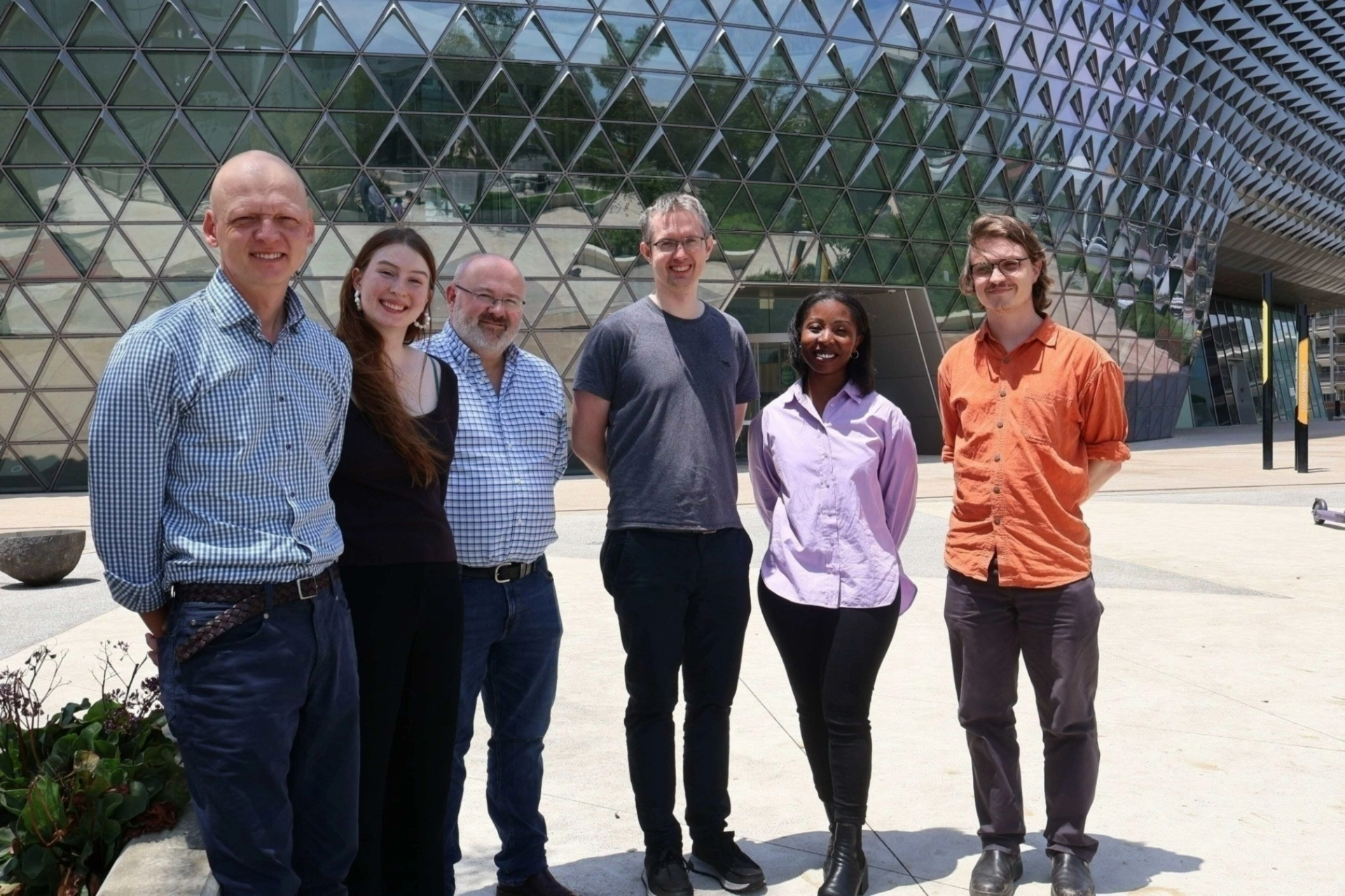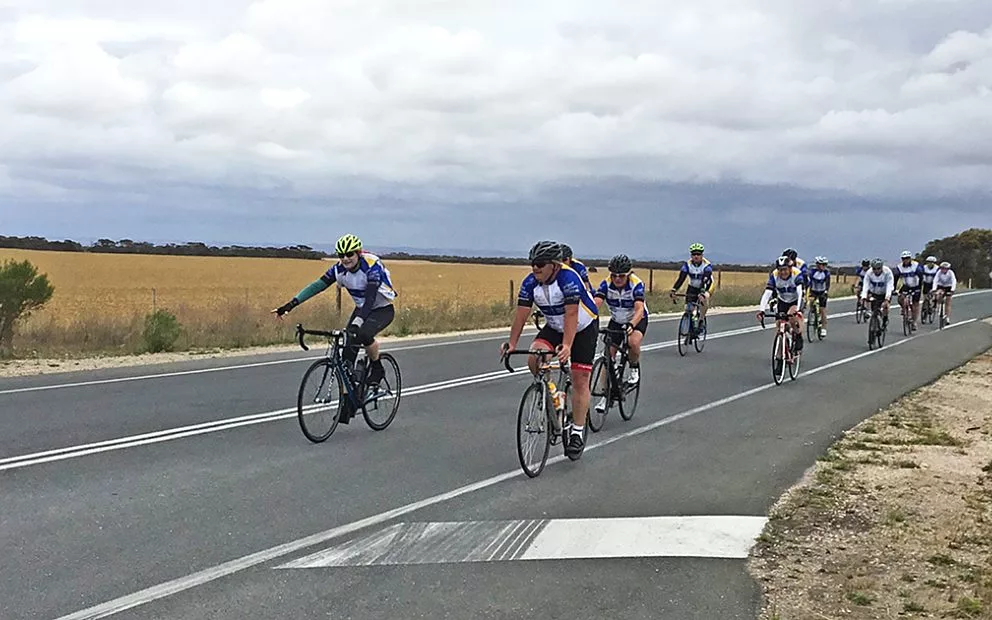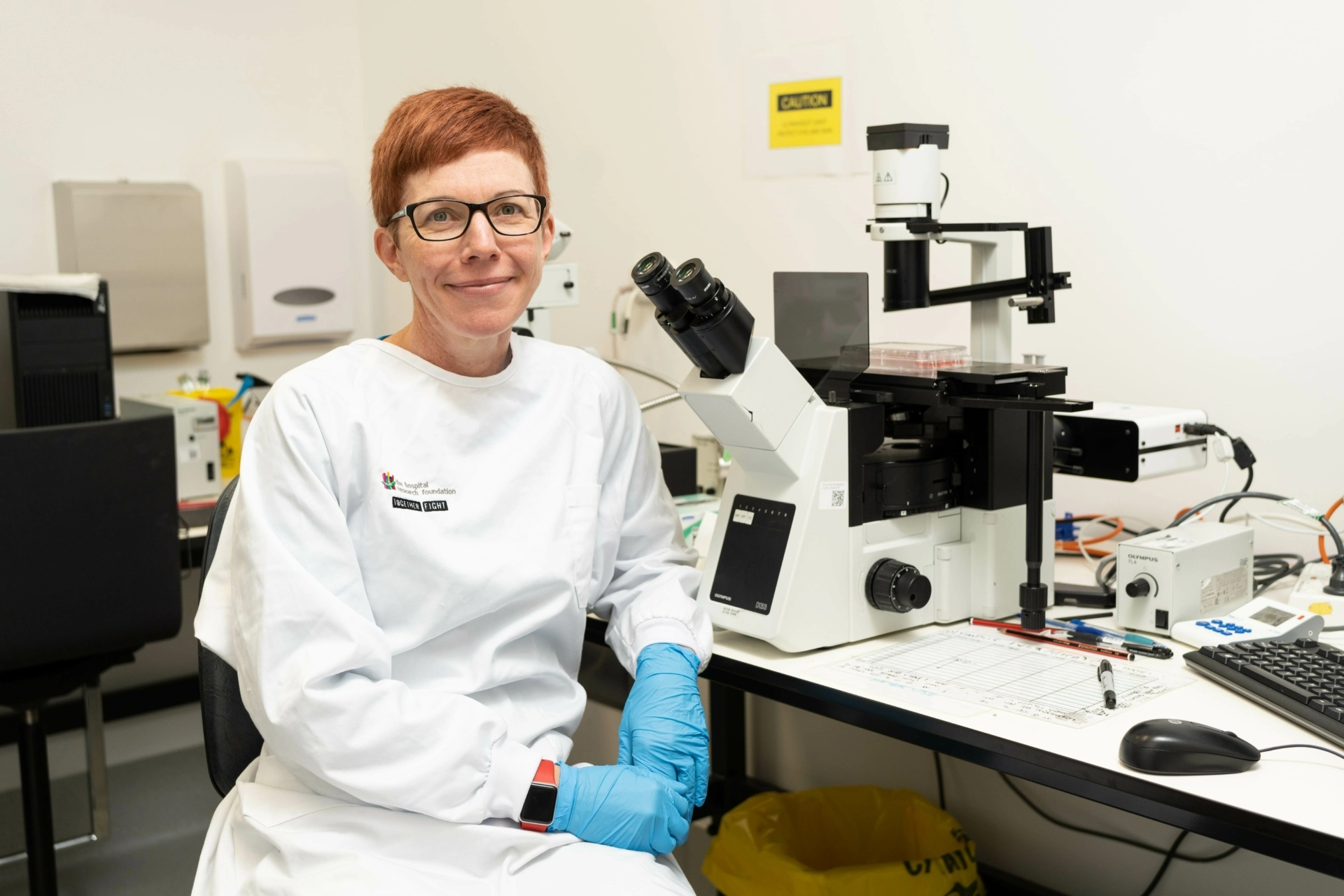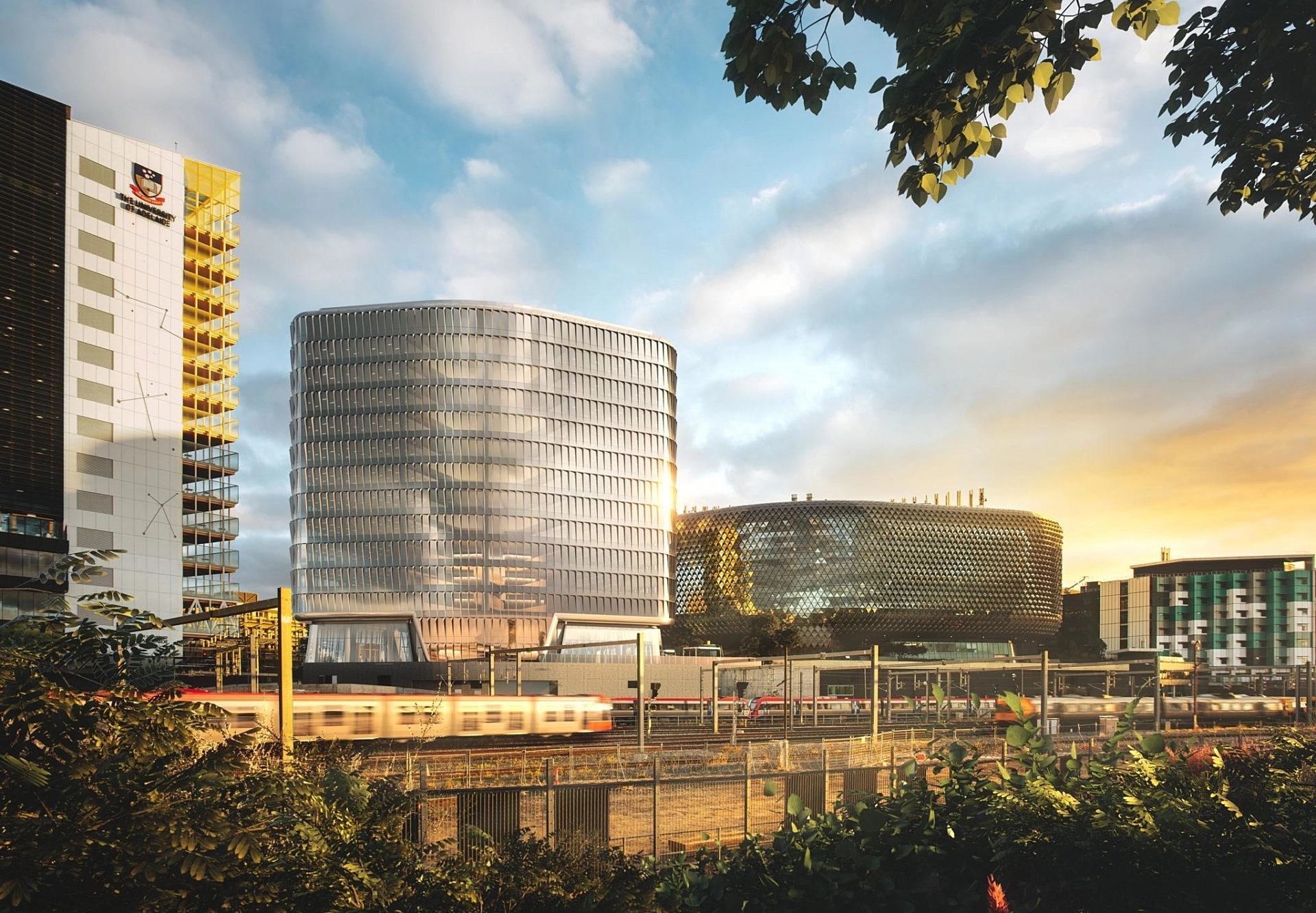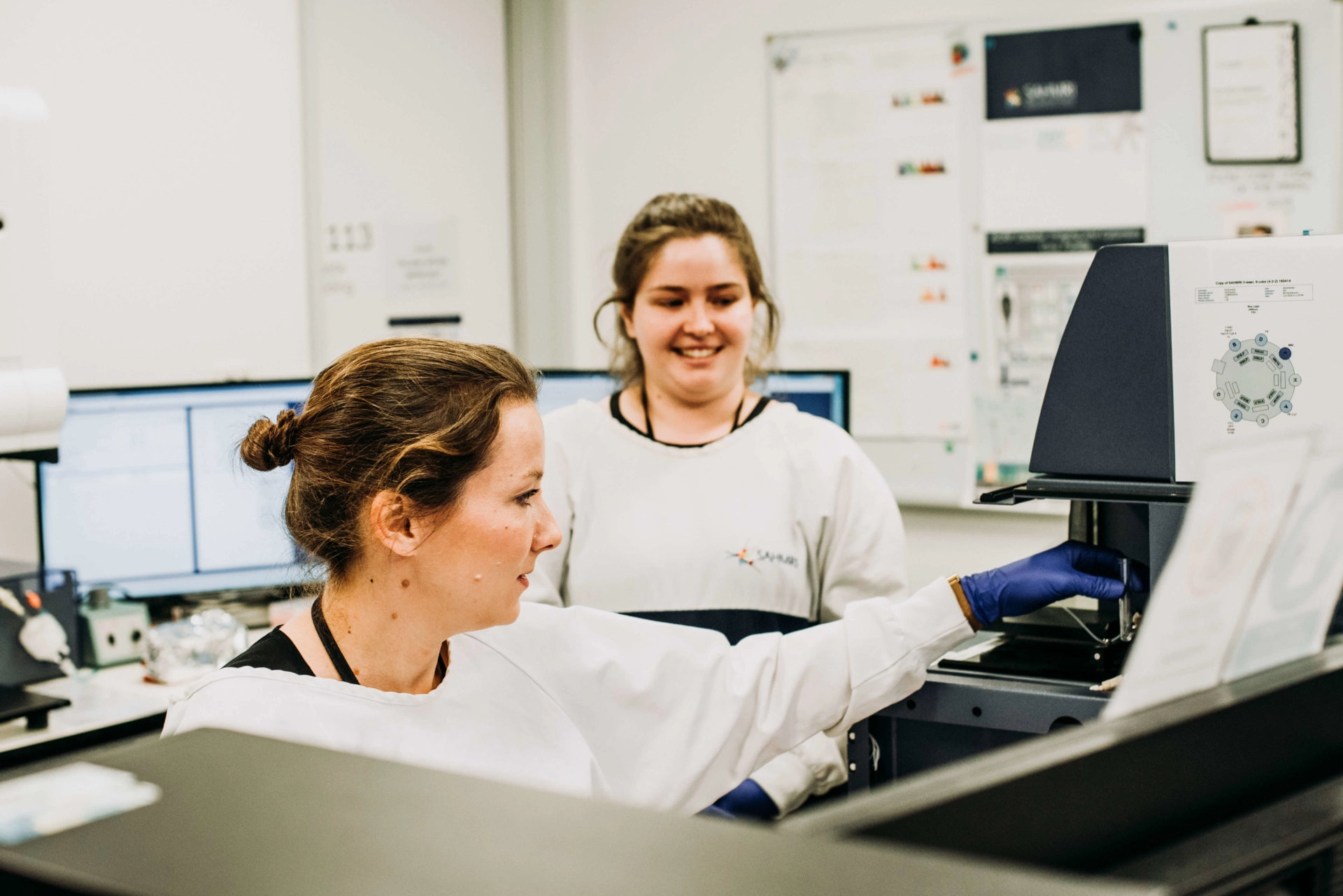SAHMRI researchers have punched above their weight in the latest Tour de Cure grant funding round, awarded seven grants by the foundation, to lead an exciting range of innovative cancer research projects in 2024.
Dr Stephen Blake has received a Pioneering Grant that will support him to generate preclinical data characterising the immune response and anti-tumour efficacy of mRNA vaccines in colorectal cancer. This data will assist in the development and translation of mRNA combination therapy in patients.
“The COVID-19 pandemic has demonstrated that mRNA vaccines are potent and highly adaptable therapies. Understanding how they alter the immune system will be critical as they are increasingly investigated as personalised cancer vaccines in a variety of cancer types,” Dr Blake said.
Dr Krzysztof Mrozik has also been awarded a Pioneering Grant, administered through the University of Adelaide, to support his work on the life-threatening blood cancer, multiple myeloma.
Dr Mrozik is developing drug delivery technologies that minimise drug side effects while optimising cancer treatment, improving patients' quality of life and survival outcomes.
“Drug therapy is integral to the success of treating myeloma, however, these drugs often have debilitating and painful side effects that limit the success of the treatment. This grant will help develop a much-needed strategy to reduce the impact of drug side effects in people with myeloma,” Dr Mrozik said.
SAHMRI junior scientists Cate Cheney, Maxim Buckley and Joyce Mugabushaka have been awarded PhD Scholarships and are combining their efforts to focus on acute lymphoblastic leukaemia (ALL).
Adolescents and young adults with ALL are recognised as a clinically vulnerable population with survival rates approximately 30-40% lower compared to children with ALL.
With an increasing shift to precision medicine approaches in cancer treatment, the microbiome possesses unique potential for personalised therapy, increasing efficacy and decreasing side effects resulting from chemotherapy.
Cate Cheney is seeking to improve outcomes for adolescents with ALL by exploring the link between the gastrointestinal microbiome and leukaemia and generating ‘mini mouse patients’ from Australian teen samples.
“I’m very grateful to Tour De Cure for providing funding to support the identification of novel connections between leukaemia and the microbiome, required for young adult patients to be streamlined into successful therapy,” Ms Cheney said.
“This will increase the translation of my PhD research into clinical practice, ensuring the work I do in the lab is reaching patients in the healthcare system to make positive real-world change.”
Maxim Buckley is studying how extracellular vesicles, tiny communication devices that all cells use, influence T-ALL treatment resistance and disease relapse.
“The grant from Tour de Cure will support my research by providing essential tools and equipment. Being a part of a family passionate about cycling, I’m grateful to receive funding from a group dedicated to both the sport and medical research,” Mr Buckley said.
More than half of ALL survivors develop chronic conditions, including weakened immunity from previous vaccinations. Joyce Mugabushaka is seeking to enhance vaccine responses in ALL survivors through gut microbiota.
“The intense ALL treatment regimen has been found to disrupt the gut microbiota for decades into remission. We now know a healthy gut microbiome is key to shaping the immune system and responses to vaccination,” Ms Mugabushaka said.
“I’m investigating whether the disrupted microbiota of ALL survivors contributes to their impaired responses and whether a probiotic could be beneficial.”
Anna Li has also received a PhD Scholarship for her project, aiming to better manage Graft versus Host Disease (GvHD).
GvHD is a common, highly debilitating complication of donor stem cell transplantation, a life-saving therapy used to treat a variety of blood cancers.
With the support of Tour de Cure, Ms Li will pursue the notion that an individual’s immune system is intricately linked with their microbiome and test her idea that perfectly matching the two is significantly important to combat GvHD.
“My long-term goal is to identify the key factors controlling outcomes for people undergoing faecal transplant for GvHD, ultimately seeking to improve its effectiveness and lessen the burden of side effects,” Ms Li said.
Affiliate Professor Jordan Hansford is the Chief Investigator (CIA), overseeing a paediatric brain cancer project through the Australian Institute for Machine Learning (AIML) at the University of Adelaide via a Senior Researcher Grant.
Brain cancer is a leading cause of death in Australian children and although survival rates are improving, treatment side effects are a significant detriment to survivors' quality of life.
Prof Hansford will leverage a unique dataset to integrate radio-genomics into the diagnostic process and treatment planning for children nationwide.
“We need new diagnostic and treatment approaches urgently. Recent epigenomic advancements show high diagnostic potential, while radiomics, aided by artificial intelligence, extracts useful information from MRI images,” Prof Hansford said.
“Combining genetic and molecular data, radio-genomics provides insights into paediatric brain cancer, aiding diagnosis and personalised therapeutics, leading to better outcomes through targeted treatment.”
All Tour de Cure projects will begin in 2024.
